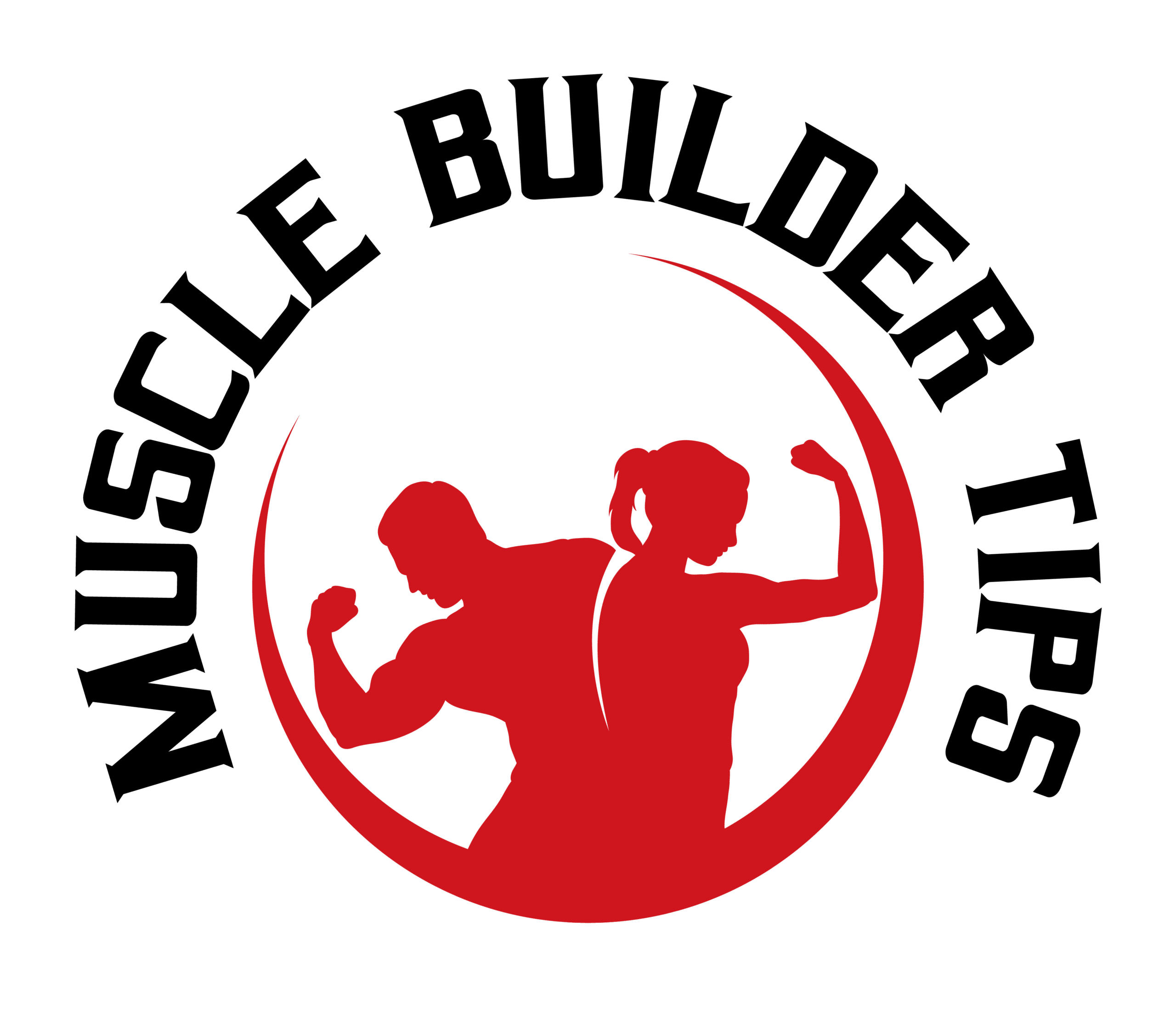
When you think about building muscle, the term “lean muscle protein” often comes to mind. Lean muscle protein refers to the high-quality proteins that contribute to muscle growth and repair without adding excessive fat to your body. This type of protein is essential for anyone looking to enhance their physique, improve athletic performance, or simply maintain a healthy lifestyle.
Understanding the role of lean muscle protein in your diet is crucial, especially if you are just starting your fitness journey. Lean muscle protein is not just about quantity; it’s also about quality. Proteins are made up of amino acids, which are the building blocks of muscle tissue.
When you consume protein, your body breaks it down into these amino acids, which are then used to repair and build new muscle fibers. This process is particularly important after exercise, as your muscles undergo stress and micro-tears that need to be repaired for growth. By focusing on lean sources of protein, you can ensure that you are providing your body with the necessary nutrients to support muscle recovery and growth while minimizing fat gain.
Key Takeaways
- Lean muscle protein is essential for building and repairing muscle tissue, and it plays a crucial role in overall muscle health and function.
- Beginners should prioritize lean muscle protein in their diet to support muscle growth, recovery, and overall fitness progress.
- Good sources of lean muscle protein include lean meats, poultry, fish, eggs, dairy products, legumes, and plant-based protein sources like tofu and tempeh.
- Beginners should aim to consume around 1.2-2.2 grams of protein per kilogram of body weight to support muscle growth and recovery.
- Whey protein, casein protein, and plant-based protein powders are popular and effective lean muscle protein supplements for beginners.
Importance of Lean Muscle Protein for Beginners
For beginners, understanding the importance of lean muscle protein is vital for achieving fitness goals. When you start a new workout regimen, your body requires additional nutrients to adapt to the increased physical demands. Lean muscle protein plays a significant role in this adaptation process.
It not only helps in muscle repair but also aids in recovery, allowing you to train more effectively and consistently. Moreover, incorporating lean muscle protein into your diet can help you manage your weight more effectively. Protein has a higher thermic effect compared to fats and carbohydrates, meaning your body burns more calories digesting it.
This can be particularly beneficial for beginners who may be looking to lose fat while gaining muscle. By prioritizing lean protein sources, you can create a balanced diet that supports your fitness goals without unnecessary calorie overload.
Sources of Lean Muscle Protein
When it comes to sourcing lean muscle protein, you have a variety of options at your disposal. Animal-based proteins such as chicken breast, turkey, fish, and lean cuts of beef are excellent choices. These proteins are not only rich in essential amino acids but also provide other vital nutrients like iron and B vitamins that support overall health.
Incorporating these foods into your meals can help you meet your protein needs effectively. Plant-based sources of lean muscle protein are also gaining popularity, especially among those who prefer vegetarian or vegan diets. Foods like lentils, chickpeas, quinoa, and tofu are packed with protein and can be easily integrated into various dishes.
Additionally, these plant-based options often come with added benefits such as fiber and antioxidants, which contribute to overall well-being. By diversifying your protein sources, you can ensure that you are getting a wide range of nutrients while still focusing on lean muscle growth.
How Much Lean Muscle Protein Do Beginners Need?
Determining how much lean muscle protein you need as a beginner can be a bit tricky, as it depends on various factors such as age, weight, activity level, and fitness goals. However, a general guideline suggests that beginners should aim for approximately 1.2 to 2.0 grams of protein per kilogram of body weight per day. This range allows for adequate muscle repair and growth while accommodating different levels of physical activity.
It’s important to note that spreading your protein intake throughout the day can be more beneficial than consuming it all in one meal. Aim for balanced meals that include a source of lean protein along with carbohydrates and healthy fats. This approach not only supports muscle synthesis but also helps maintain energy levels throughout the day.
By being mindful of your protein intake and timing, you can optimize your results as you embark on your fitness journey.
Best Lean Muscle Protein Supplements for Beginners
While whole foods should always be your primary source of lean muscle protein, supplements can be a convenient way to help you meet your daily requirements, especially for beginners who may struggle with meal planning. Whey protein powder is one of the most popular options due to its high bioavailability and quick absorption rate. It’s an excellent post-workout choice that can aid in recovery and muscle growth.
For those who prefer plant-based options, pea protein and brown rice protein are great alternatives. These supplements provide a complete amino acid profile when combined and are suitable for vegans or those with lactose intolerance. Additionally, casein protein is another option worth considering; it digests slowly and can be beneficial for overnight recovery when taken before bed.
Choosing the right supplement depends on your dietary preferences and specific fitness goals.
Tips for Incorporating Lean Muscle Protein into Your Diet
Incorporating lean muscle protein into your diet doesn’t have to be complicated or time-consuming. One effective strategy is to plan your meals ahead of time. By preparing meals that include a source of lean protein, such as grilled chicken or baked fish, you can ensure that you’re meeting your nutritional needs without resorting to unhealthy options when hunger strikes.
Another tip is to experiment with different recipes that highlight lean proteins. For instance, try making stir-fries with tofu or chickpeas, or create hearty salads topped with grilled shrimp or turkey slices. Additionally, consider using snacks as an opportunity to boost your protein intake; options like Greek yogurt, cottage cheese, or nut butter on whole-grain toast can provide a satisfying and nutritious snack that supports your muscle-building efforts.
Common Misconceptions about Lean Muscle Protein
As you delve deeper into the world of lean muscle protein, you may encounter several misconceptions that could hinder your progress. One common myth is that consuming excessive amounts of protein will automatically lead to increased muscle mass. While protein is essential for muscle growth, it’s important to remember that balance is key; overconsumption can lead to unwanted fat gain if not paired with appropriate exercise.
Another misconception is that all proteins are created equal. Not all protein sources provide the same benefits; some may lack essential amino acids or come with unhealthy fats. It’s crucial to focus on high-quality sources of lean protein rather than simply increasing your intake indiscriminately.
By educating yourself about these misconceptions, you can make informed choices that align with your fitness goals.
Potential Risks and Side Effects of Consuming Too Much Lean Muscle Protein
While lean muscle protein is essential for building and maintaining muscle mass, consuming it in excess can lead to potential risks and side effects. One concern is the strain it may place on your kidneys over time, especially if you have pre-existing kidney conditions. High-protein diets can increase the workload on these organs as they filter out waste products from protein metabolism.
Additionally, an excessive intake of protein can lead to digestive issues such as bloating or constipation if not balanced with adequate fiber from fruits and vegetables. It’s important to maintain a well-rounded diet that includes a variety of food groups rather than focusing solely on protein intake. By being mindful of how much lean muscle protein you consume and ensuring it fits within a balanced diet, you can enjoy its benefits without experiencing negative side effects.
In conclusion, understanding lean muscle protein is crucial for anyone looking to embark on a fitness journey or enhance their overall health. By recognizing its importance, sourcing quality proteins, determining appropriate intake levels, and dispelling common myths, you can set yourself up for success in achieving your fitness goals while maintaining a balanced diet. Remember that moderation is key; by incorporating lean muscle protein thoughtfully into your meals and snacks, you can support your body’s needs without compromising overall health.
If you are looking to complement your lean muscle protein diet with cardiovascular exercise, check out this article on cardiovascular exercise for muscle building. It provides valuable information on how to incorporate cardio into your routine to maximize muscle growth. Additionally, if you are interested in setting up a home gym to further enhance your muscle-building efforts, be sure to read this article on creating a home gym setup for muscle growth. And for those looking for effective full-body workouts to help build lean muscle, this article on full-body workouts offers a variety of exercises to target all major muscle groups.
FAQs
What is lean muscle protein?
Lean muscle protein refers to the type of protein that is low in fat and carbohydrates, making it ideal for building and maintaining lean muscle mass. It is often found in foods such as chicken, turkey, fish, and lean cuts of beef.
Why is lean muscle protein important for beginners?
Lean muscle protein is important for beginners because it provides the essential building blocks for muscle growth and repair. It also helps to support a healthy metabolism and can aid in weight management.
How much lean muscle protein should beginners consume?
The amount of lean muscle protein needed can vary depending on factors such as age, weight, and activity level. As a general guideline, beginners should aim to consume around 0.8-1.0 grams of protein per kilogram of body weight per day.
What are some sources of lean muscle protein?
Some sources of lean muscle protein include chicken, turkey, fish, lean cuts of beef, eggs, dairy products, and plant-based sources such as tofu, tempeh, and legumes.
Can beginners get enough lean muscle protein from their diet alone?
It is possible for beginners to get enough lean muscle protein from their diet alone, especially if they consume a variety of protein-rich foods. However, some beginners may choose to supplement their diet with protein powders or bars to ensure they are meeting their protein needs.
Are there any potential risks or side effects of consuming lean muscle protein?
Consuming lean muscle protein from natural food sources is generally safe for most people. However, consuming excessive amounts of protein, especially from supplements, can put strain on the kidneys and may lead to dehydration. It’s important for beginners to consult with a healthcare professional before making significant changes to their diet.
